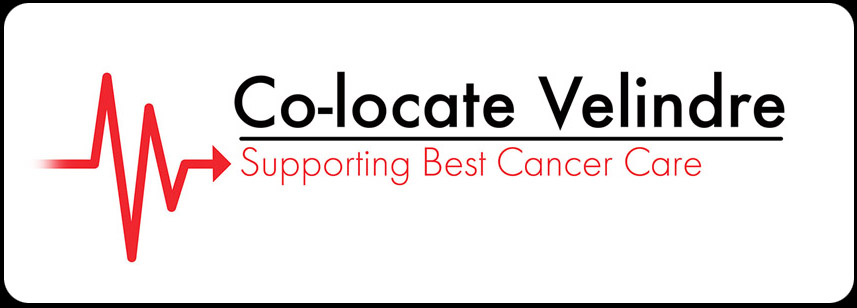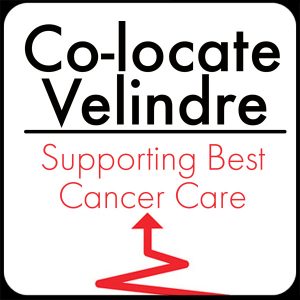Dear Acorn. Our medical campaign wishes to share with you information that is professionally and morally important to you. We are not a fringe group. Our views align with the dominant clinical cancer expertise throughout the world. The real fringe view is that which deviates from this best practice, namely New Velindre.
- The World Health Organisation’s 120-page document Setting Up a Cancer Centre (2022) makes clear that new cancer centres, including day treatment units, must be located on hospital sites.
- By going against leading expertise, New Velindre invites ridicule from international health groups, however ‘green’ the build claims to be.
- Controversy around the site and model in 2020 forced New Velindre to take advice from the Nuffield Trust (terms of reference and funding provided by Velindre – access the report below). Velindre alleges that the report approved the planned long-term infrastructure at Whitchurch. However, Nuffield did not say that the current planned build should go ahead.
- Velindre’s quote misconstrues Nuffield’s words, wrenching them out of context:
‘[Nuffield] advised that collocation would not be an option for some considerable time. It also emphasised that solutions to the immediate issues facing cancer services were ‘required now rather than an indeterminate point in the future. [It] concluded that with the implementation of its recommendations, the proposed model for tertiary cancer services in south-east Wales would ‘offer a safe and high-quality service’.
- What the Nuffield press release actually said in order to make clear its recommendation here was: ‘With some adjustments, including locating inpatient care for patients at risk of major escalation at relevant local acute hospitals… and co-locating a cancer research and trials hub with inpatient beds at University Hospital Wales, the proposed network model supported by a new cancer centre offers the potential for a safe and high-quality service that provides a good patient experience.’
- Notably it’s only a potential not a certain outcome. Moreover, the passages from Nuffield quoted by Velindre focus only on the ‘immediate issues’, namely patients at risk of deterioration in the current Velindre. And it stipulates that these will require admission to acute hospitals, especially University Hospital Wales. In fact, this stipulation marks the beginning of co-located care. Hence it does NOT refer to the planned new build.
- What’s more, the number of such patients at risk will increase with available new treatments. Nuffield here gives no approval of a long-term ‘stand-alone’ cancer unit but approves what is only a ‘reasonable way forward’, including ongoing work towards a more future-proof solution on an acute site in the coming ten years. The currently intended building to serve for decades is therefore a wasteful, over-the-top response to advice meant only as immediate measures.
- Moreover, the Nuffield report elsewhere made very plain that only research based at an acute hospital site can be the ultimate driver of world-class cancer excellence. Just as WHO’s manual has also made plain.
- Nuffield did not say that the proposed network will transform cancer services. Because they know it won’t. Not without a co-located hub at an acute hospital for world-class cancer research and treatment.
- When mentioning ‘flexible design’, Nuffield did not say, ‘just get on and build it here anyway and you can always get some kind of “change of use” afterwards’.
- However, it did stress that choice of site could only be made through a large-scale options appraisal. But Velindre never did this in 2014, nor got it done post-Nuffield. See definitive links below, especially the first one.
- Nuffield did not give reassurance to the residents of Cardiff and its environs. These many South-East Wales residents will lack a local comprehensive cancer therapy service sited at a general hospital. All stakeholders are complicit in this provision of substandard care.
- If you think we exaggerate, why not get a third disinterested opinion? Ask clinicians working in cancer outside Wales about the advisability of building a brand-new cancer unit away from a hospital setting.
- Lastly and most importantly, we respectfully urge you to familiarise yourself with the WHO report in the interest of protecting your established professional reputation: Setting Up a Cancer Centre: A WHO–IAEA Framework | IAEA
Our campaign through the blog Co-locate Velindre – Supporting Best Cancer Care, will continue even if this cancer unit is built, whatever other campaigns choose to do. This is because it’s a fight for best cancer care. The case for co-location is primarily about the siting of cancer services so will continue to have prominent media coverage just as it has already. This will still oblige us to focus on what some locals already call ‘that Acorn white elephant.’ To which might get added: ‘those developers who took the money that might have given us a quality cancer service.’
Respectfully,
Co-locate Velindre
Nuffield Trust report: Nuffield Trust publishes report on cancer services in South East Wales | The Nuffield Trust. See especially pages 3, 37-39
Nuffield Trust Press-release – https://www.nuffieldtrust.org.uk/news-item/nuffield-trust-publishes-report-on-cancer-services-in-south-east-wales-1
See some disconcerting links regarding the missing, initial, appraisal process (even yet not corrected):
See especially the update of a January 6th 2022 blog
and
and
See also recent newspaper reports:
[This presentation of the letter follows the original closely but is an electronic version, includes a few minor edits for a blog and adds three further links]

